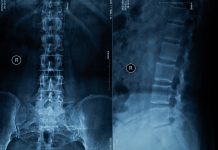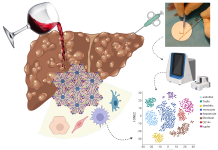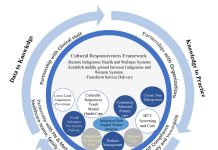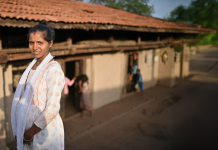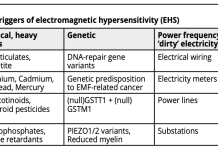Open Access Government produces compelling and informative news, publications, eBooks, and academic research articles for the public and private sector looking at health, diseases & conditions, workplace, research & innovation, digital transformation, government policy, environment, agriculture, energy, transport and more.
Home 2026
Archives
Magnetobiology: Beyond attraction
Jinxing Li and Christopher H. Contag delve into the emerging field of magnetobiology, which utilizes magnetic fields to manipulate and control living systems, while reflecting on its potential to surpass the limitations of other modalities.
How academic-tribal teams cut cancer risks in Native American communities
Learn how the Native American Center for Cancer Health Excellence addresses cancer health disparities through bidirectional research that honors tribal sovereignty.
Modern payment models in health
Oriana Ciani addresses the financial pressures that healthcare payers face due to rising costs of innovative therapies. The HI-PRIX project, funded by Horizon Europe, aims to create adaptable pricing and payment model for health systems, focusing on financial sustainability, supporting innovation, and ensuring timely access to high-cost medicines.
The next step in regenerative medicine for osteoarthritis: Spscs and a new regulatory pathway
Osteoarthritis (OA) remains one of the leading causes of disability worldwide, burdening health systems and diminishing quality of life for millions.
Piezo4Spine: Dreaming on a cure for paraplegic patients
Piezo4Spine is a European project that aims to develop a novel therapy to repair the injured spinal cord, a pathology for which a cure remains elusive. María C. Serrano tells us more.
Liver regeneration in alcohol related liver disease
Recompensation in liver disease indicates both a physical and molecular improvement in liver functions. Molecular regeneration is key to improving liver function, and novel technologies in proteomics and RNA transcriptomics may hold the key to advancing liver regeneration in alcohol-related liver disease. Nina Kimer explains.
Indigenous health research program: Offering insights for better health
Dr. Mamata Pandey, Research Scientist at the Saskatchewan Health Authority in Canada shares insights from her Indigenous-partnered health research program, enhancing health.
From pilots to system value: AI, leadership and collaboration in value-based healthcare
As AI and robotics transform healthcare, the challenge is shifting from developing new tools to delivering measurable value for patients and health systems. This article explores how Value-Based Healthcare (VBHC) can help turn digital innovation into scalable, system-wide impact
Endothelial – The final frontier to reduce preterm birth and death from sepsis
Each year, around 15 million babies are born prematurely, with nearly one million dying soon after due to complications. Maternal mortality remains high, particularly in low-resource settings. This article describes how assessing endothelial integrity and function could help identify at-risk pregnancies to prevent adverse outcomes.
Women and heat stress: A silent risk in the climate-exposed workforce
As global temperatures rise, sex-specific vulnerabilities to extreme heat are emerging as a critical blind spot in occupational health policy. Luana Main and Lilia Convit explain.
Preventing Electromagnetic Hypersensitivity (EHS)
Michael Bevington discusses strategies for recognising and reducing the impact of manufactured electromagnetic fields (EMFs) and radiation, focusing on EHS triggers, risk reduction, and long-term non-thermal guidelines.
Developmental biology: A self-propagating wave builds skull bones
Interdisciplinary approaches in developmental biology have revealed how cells build the embryonic bones of the skull vault. Spatial and temporal dynamics are coordinated by cells as they build the extracellular environment, Jacqueline Tabler explains.
The legacy of bias: Building the foundation for sex and gender-based medicine
Alyson J. McGregor, Associate Dean at the University of South Carolina School of Medicine, highlights the historical bias present in medical research; the exclusion of which has created a significant knowledge gap that impacts the diagnosis and treatment of various health conditions.
Smarter decisions, better outcomes: How a new molecular test improves patient care
Oliver Bathe, Professor of Surgery and Oncology at the University of Calgary and CEO of Qualisure Diagnostics, examines how a new molecular test can lead to smarter decisions and better patient care outcomes in his third article.
Algae4IBD: A holistic approach to IBD treatment
The Algae4IBD project is exploring the untapped potential of algae and cyanobacteria to manage inflammatory bowel disease (IBD). In this exclusive Q&A, Dr. Dorit Avni, Research Group Leader explains how the team are creating innovative functional foods, aiming to improve quality of life and prolong remission for patients worldwide.
Resilience as a metric: Why midlife interventions matter more than ever
Dr Rebecca Crews and Heather Makar from Renue By Science advocate for changing health policy to prioritize proactive resilience maintenance over reactive disease treatment, especially during midlife. They emphasize the benefits of NAD+ biology as a measurable intervention framework.
Fueling bone regeneration by rewriting immune metabolism
Chima V. Maduka, DVM, MS, PhD, and Christopher H. Contag, PhD, provide insights on tuning immunometabolism to resolve inflammation and promote repair at the bone–biomaterial interface.
Co-occurring disorders and the need for a research network
The treatment of patients with pain and co-occurring disorders presents a significant knowledge gap that necessitates a strong infrastructure for conducting representative clinical trials. Norm Buckley from the Michael G. DeGroote Institute for Pain Research & Care explains.
Removing systemic barriers to register overseas trained doctors in New Zealand while preventing their...
Dr Charles Mpofu and Dr Dianne Wepa discuss removing systemic barriers for overseas-trained doctors registering in New Zealand while also addressing mental health challenges.
Vitamin a toxicity: “Too much of a good thing”
Fredric Gorin, Sarah Torres, and Pamela J. Lein discuss the implications of vitamin A supplementation during a recent measles outbreak in the US. They explain that a common misconception – that vitamin A supplementation can prevent the transmission of measles among unvaccinated individuals – can result in vitamin A toxicity.





